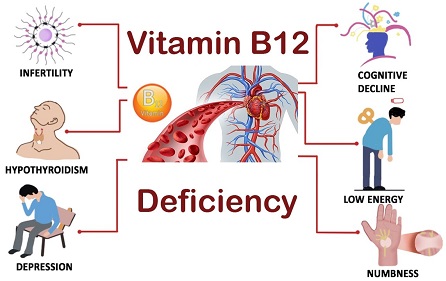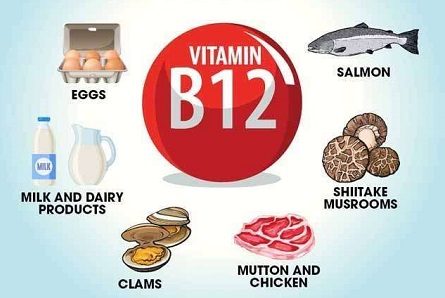Vitamin B12 is an important nutrient for the health of the entire body.Vitamin B12 is important for the normal formation of red blood cells and the health of the nerve tissues.
Its beneficial properties contribute to the health of the nervous and cardiovascular system, as well as to the prevention of anemia.

Vitamin B12 works with folic acid in many body processes, including DNA synthesis, red blood cells and insulin sheath (the myelin sheath) that surrounds nerve cells and facilitates the transmission of signals to the nervous system.
The absorption of vitamin B12 is a complex process, subject to various problems, in many places. B12 derived from animal feed enters the stomach as part of animal proteins and must first be released from pepsin and hydrochloric acid.
Because the absorption process is so complex and therefore subject to various side effects, many people – especially the elderly – may develop a shortage, although they may receive abundant B12 from their diet.
B12 is almost exclusively in animal feeds such as beef liver, meat, fish, shellfish, dairy products and eggs, but the original source of B12 in nature is bacteria, the only creatures that can make this vitamin.

Plant foods that are said to be sources of B12 contain essentially B12 derivatives (called buds) – and are essentially substances that block the intake of true B12 and increase the body’s need for the nutrient.
Liver is used from the body to B12 for many years. This is the reason why there is a delay in the appearance of the defieciency symptoms, which may confuse people that are at the beginning of a vegetarian diet or those who have absorption problems.
B12 deficiency mimics many of the characteristics of aging, such as inertia and unsteady pace, muscle weakness, incontinence, slowing reactions, loss of memory, disorientation, depression and confusion.
Source: doctorsformulas.com